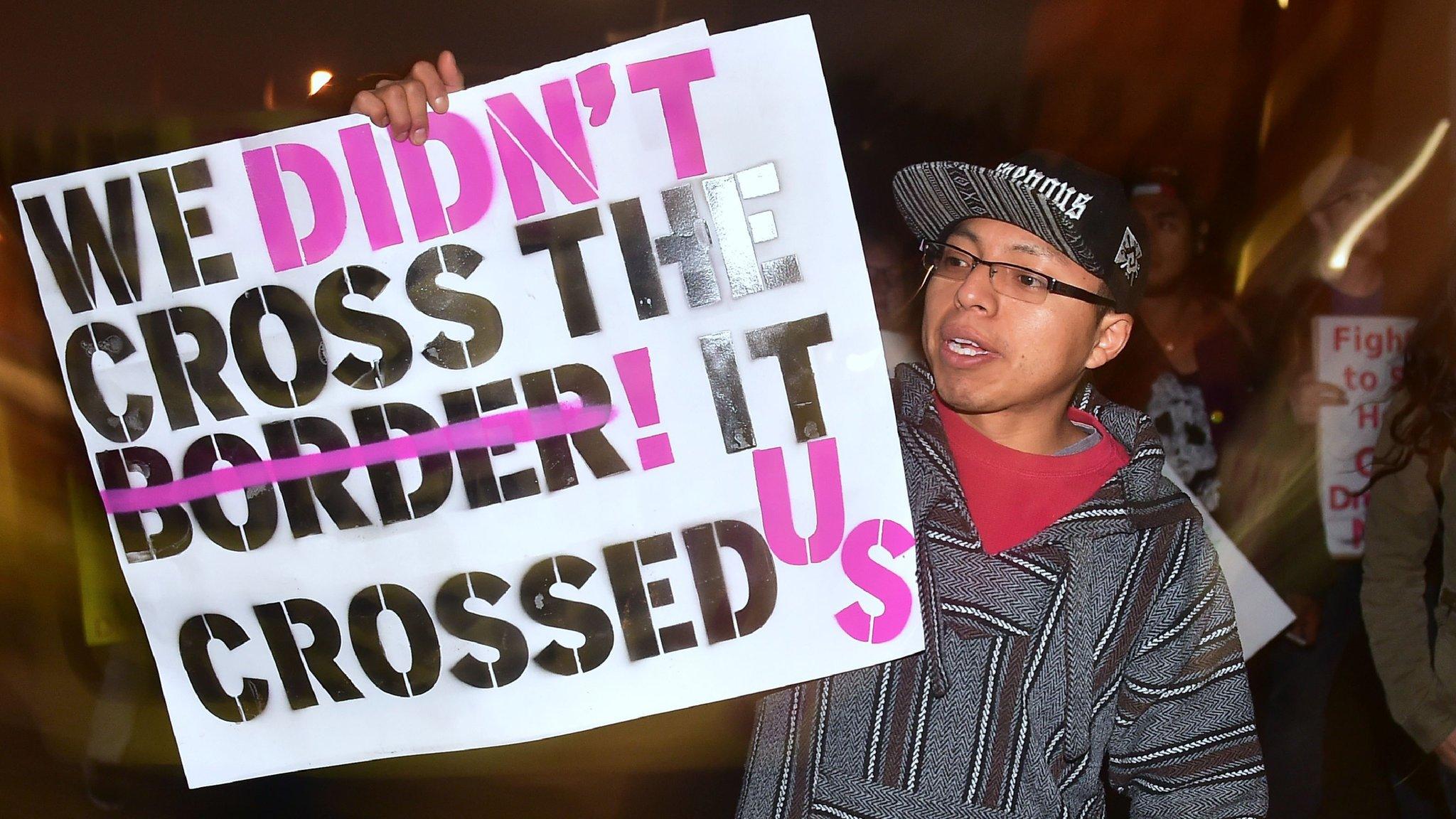Separation of migrant families: What other countries do
- Published
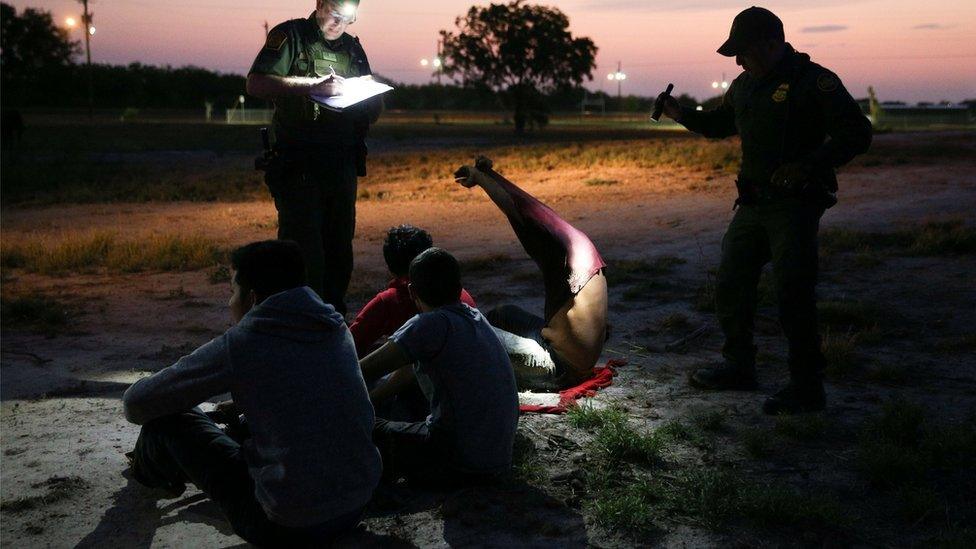
The number of people trying to cross into the US has risen sharply recently
US Attorney General Jeff Sessions has defended the separation of migrant children from their parents at the border with Mexico, a measure that has faced increasing criticism.
The "zero-tolerance" policy he announced last month sees adults who try to cross the border, many planning to seek asylum, being placed in custody and facing criminal prosecution for illegal entry. As a result, hundreds of minors have been taken from them.
What is happening?
Mr Sessions said those entering the US irregularly would be criminally prosecuted, a change to a long-standing policy of charging most of those crossing for the first time with a misdemeanour offence.
As the adults are being charged with a crime, the children that come with them are being separated and deemed as unaccompanied minors.
As such, they are placed in custody of the Department of Health and Human Services and sent to a relative, foster home or a shelter - officials at those places are said to be already running out of space to house them.
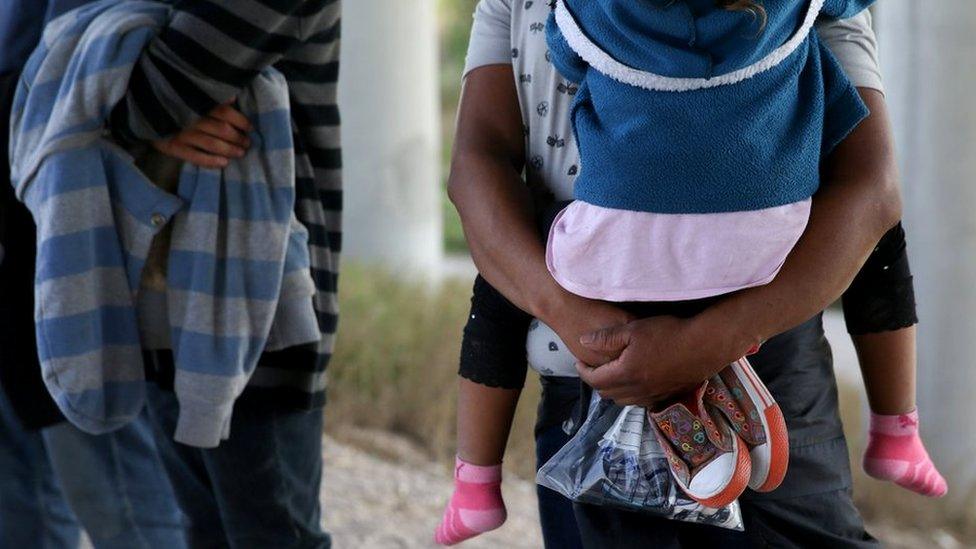
Many of the families fled violence in their countries and planned to seek asylum in the US
In the first two weeks of the new approach, 658 minors - including many babies and toddlers - were separated from the adults that came with them, according to the US Customs and Border Protection.
The practice, however, was apparently happening way before that, with reports saying more than 700 families had been affected, external between October and April.
Not only the families crossing irregularly are being targeted, activists who work at the border say, but also those presenting themselves at a port of entry.
"This is really extreme, it's nothing like we have seen before," said Michelle Brané, director of Migrant Rights and Justice at the Women's Refugee Commission, a New York-based non-governmental organisation that is helping some of these people.
In many of the cases, the families have already been reunited, after the parent was released from detention. However, there are reports of people being kept apart for weeks and even months.
Family separations had been reported in previous administrations but campaigners say the numbers then were very small.
Why is the US doing it?
The number of families trying to enter the US overland without documentation is on the rise, external. For the fourth consecutive month in May, there was an increase in the number of people caught crossing the border irregularly - in comparison with the same month of 2017, the rise was of 160%.
"The trends are clear: this must end," Mr Sessions said last month., external
It is not clear, though, if the tougher measures will stop the migrants. Most are fleeing violence and poverty in Central American countries like El Salvador, Guatemala and Honduras and staying, for many, could mean a death sentence.
Human rights groups, campaigners and Democrats have sharply criticised the separations, warning of the long-term trauma on the children. Meanwhile the UN Human Rights Office called on the US to "immediately halt" them.
But Mr Sessions has defended the measure, saying the separations were "not our goal" but it was not always possible to keep parents and children together.
What is the policy in other countries?
No other country has a policy of separating families who intend to seek asylum, activists say.
In the European Union, which faced its worst migrant crisis in decades three years ago, most asylum seekers are held in reception centres while their requests are processed - under the bloc's Dublin Regulation, people must be registered in their first country of arrival.
Measures may vary in different member states but families are mostly kept together.
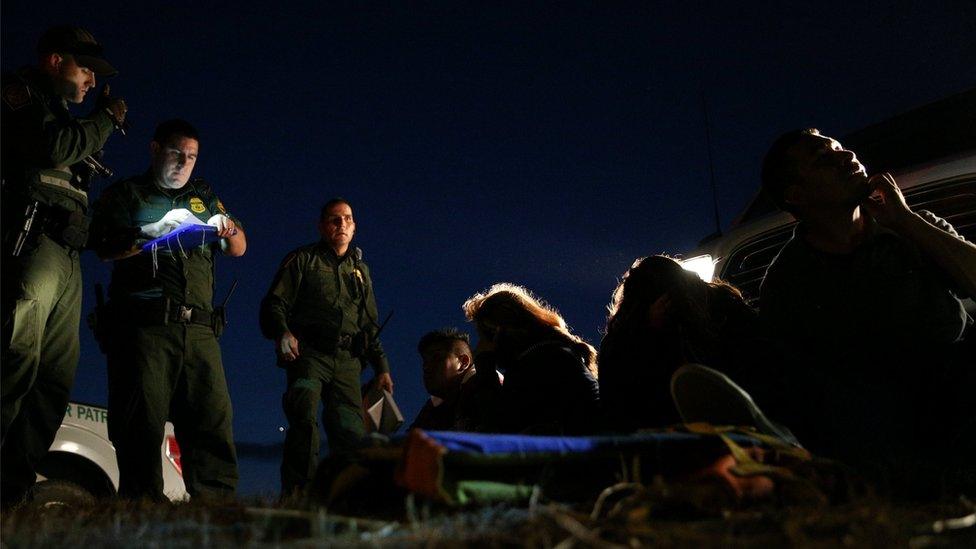
Most of the families have been separated while trying to cross illegally, activists say
Even in Australia, which has some of the world's most restrictive policies, including the detention of asylum seekers who arrive by boat in controversial offshore centres, there is no policy to separate parents from their children upon arrival.
Meanwhile, Canada has a deal with the US that allows it to deny asylum requests from those going north. It has tried to stem the number of migrants crossing outside border posts after a surge of Haitians and Nigerians coming from its neighbour. However, there were no reports of families being forcibly separated.
"What the US is doing now, there is no equivalent," said Michael Flynn, executive director of the Geneva-based Global Detention Project, a non-profit group focused on the rights of detained immigrants. "There's nothing like this anywhere".

More on US Immigration
The US-Mexican family split by the border
- Published6 June 2018
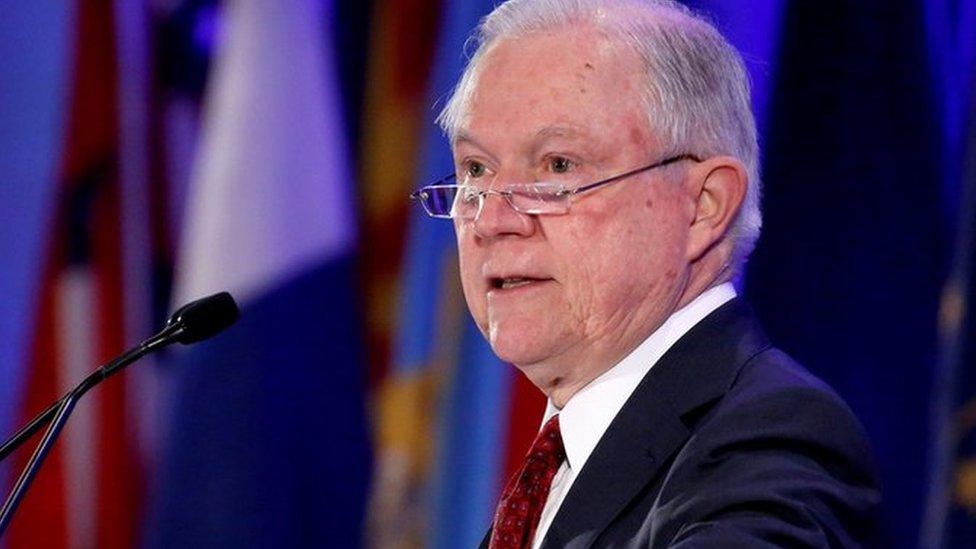
- Published22 May 2018
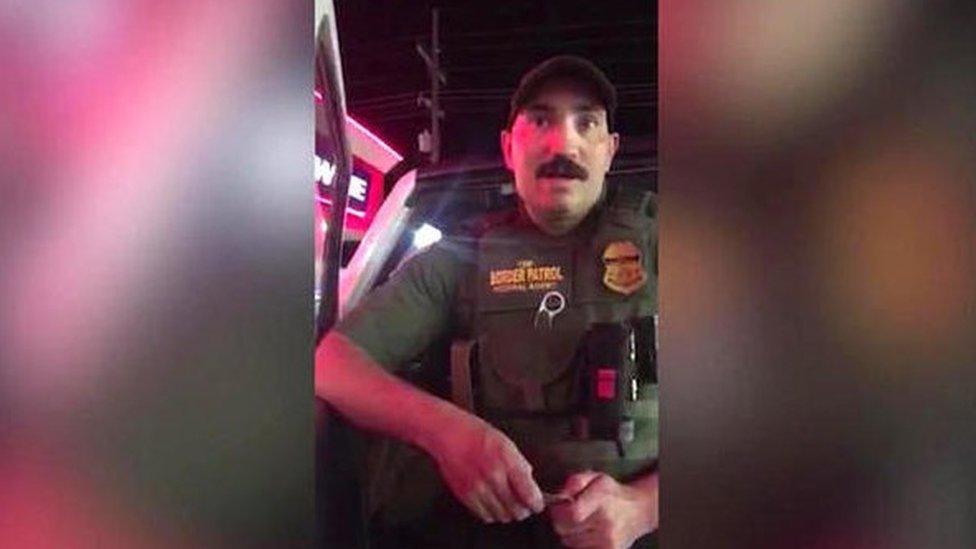
- Published3 April 2018
